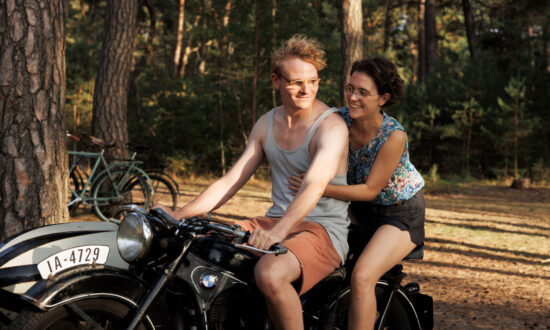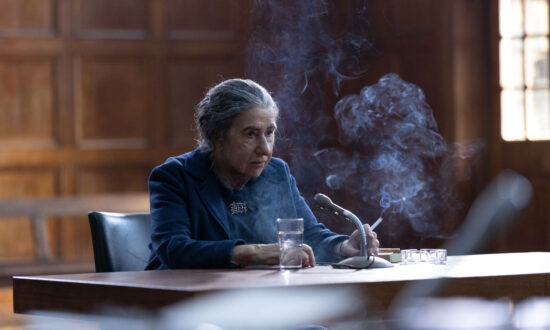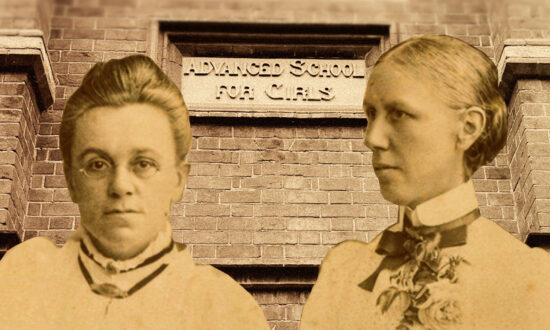It opens with fractured snapshots from a holiday resort in the sun, a bombardment of images that are random and overlapping. Like memories.
Since its brief Australian premiere at the Adelaide Film Festival and in the run-up to the Oscars, Aftersun has been highly praised, and lead actor Paul Mescal is an Oscar nominee. Yet it takes a while to be seduced because on the surface everything seems so normal and nice.
A father and daughter are on holiday at a budget resort somewhere in Turkey, putting on sunscreen, sitting around the pool and eyeing people off, mucking around together.
The camera barely leaves Calum (Mescal) and Sophie (Frankie Corio) as they have fun in the sort of compressed manner that estranged parents and children do when they are thrown together for holiday access. Sophie is up for it but she is watchful as Calum, gentle and withdrawn, does his tai chi practice – his ninja poses, she calls them. It’s a small tip-off that Calum, beneath the happy dad exterior, has coping mechanisms to keep himself on track.
Sophie, who overhears Calum saying “I love you” to his ex-wife on the phone, asks if he would ever think about coming back to Scotland. “There’s this feeling, once you leave where you’re from, that you don’t totally belong there again,” he tells her, and his words sound heavy.
They do touristy things, have a mud bath, he buys her a tribal rug, the sky is filled with paragliders, there is a buffet bar, there are older kids around who Sophie is drawn to; everyone is intent on having fun. But at some point, a sneaky sense of dread builds, the awful feeling that Calum is going to lose control and something bad will happen.
It is enough to know that by then you are heavily invested in them both, as father and daughter and as individuals. As a side event, a karaoke sequence revealing Calum’s crippling lack of confidence feels desperately sad as he stays in his seat, leaving Sophie stranded behind the mic.
Their rapport is astonishingly natural, the more so given this was Corio’s first film, and the directorial debut of Charlotte Wells, who gives us understatement stripped of artifice. Sophie is perfectly poised at that moment of blossoming awareness just before adolescence, and Corio’s performance is remarkable.
Mescal, a rising star since his breakout performance in Normal People, went on holiday with Corio before filming began, and they got to know each other well enough to pull off perfect, casual intimacy. “I love you,” he calls out at the airport, seeing her off to return home to her mum. “Love ya!” she calls back.

Get InReview in your inbox – free each Saturday. Local arts and culture – covered.
Thanks for signing up to the InReview newsletter.
Filmed in the saturated tones of a home video, Aftersun has the feeling of the 1990s; not in an obvious way, although some of the musical references help. We are witnessing bittersweet and treasured fragments from a moment of family history. Sophie’s coming-of-age story with the father she barely knew ends 20 years later, as quietly and ordinarily as it began. By then, the emotional undertow is heavy, and filled with pain.
Aftersun is in cinemas now.
Support local arts journalism
Your support will help us continue the important work of InReview in publishing free professional journalism that celebrates, interrogates and amplifies arts and culture in South Australia.
Donate Here




